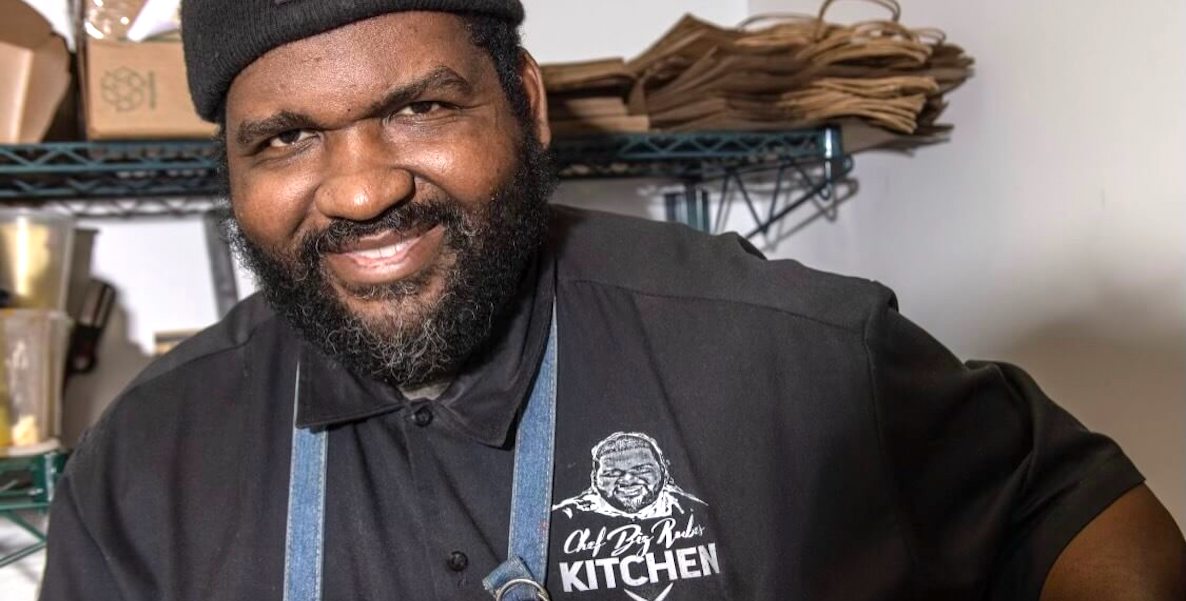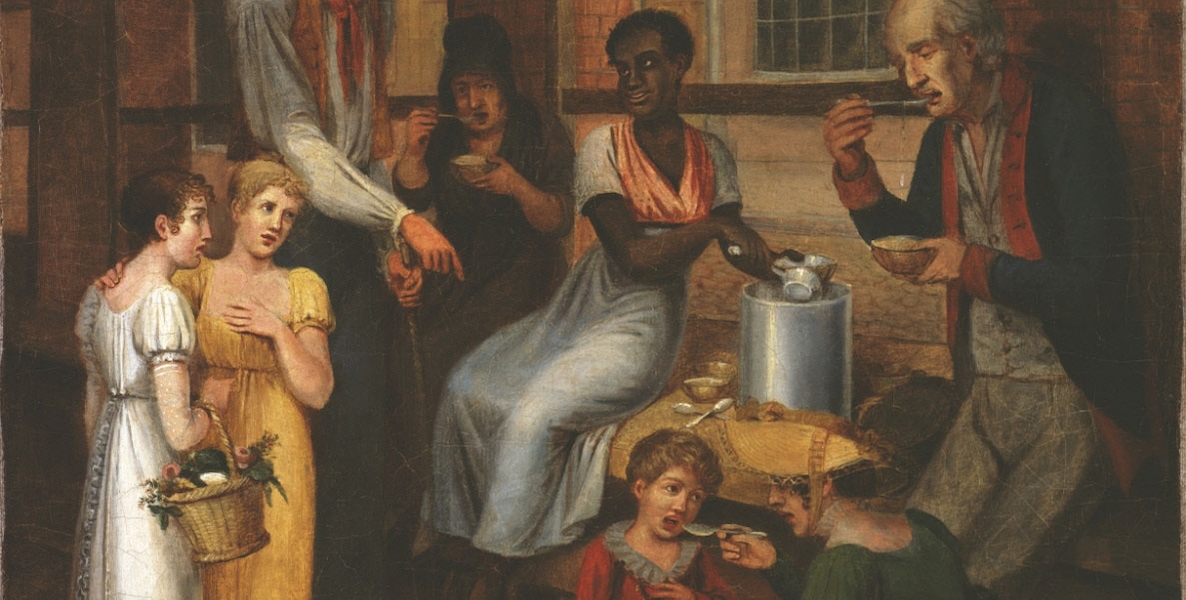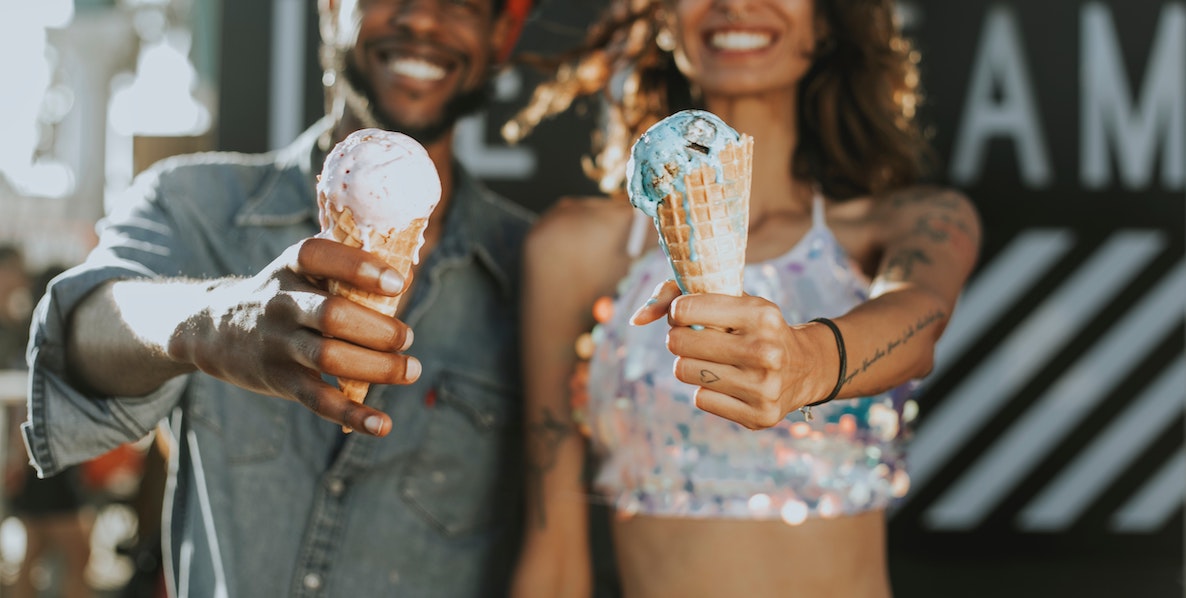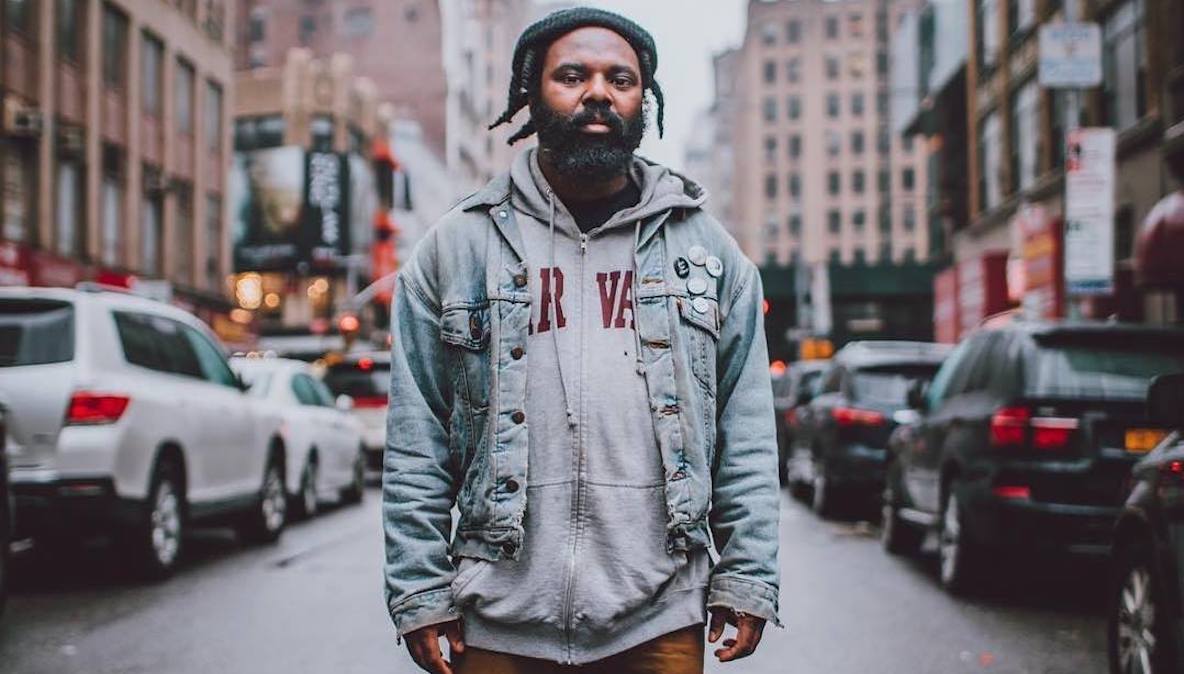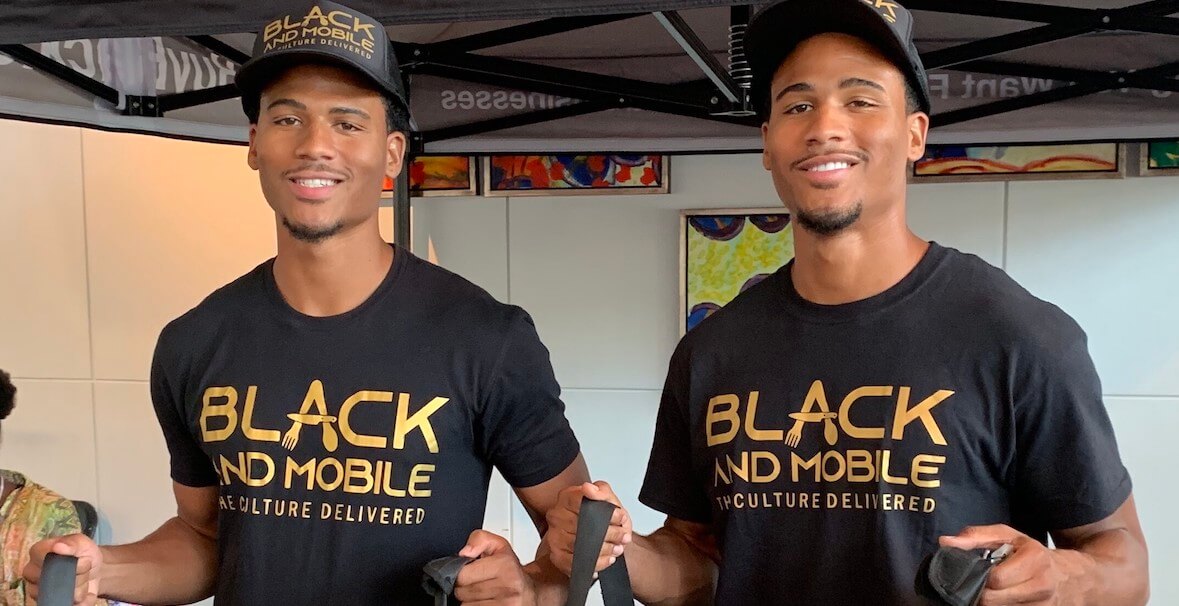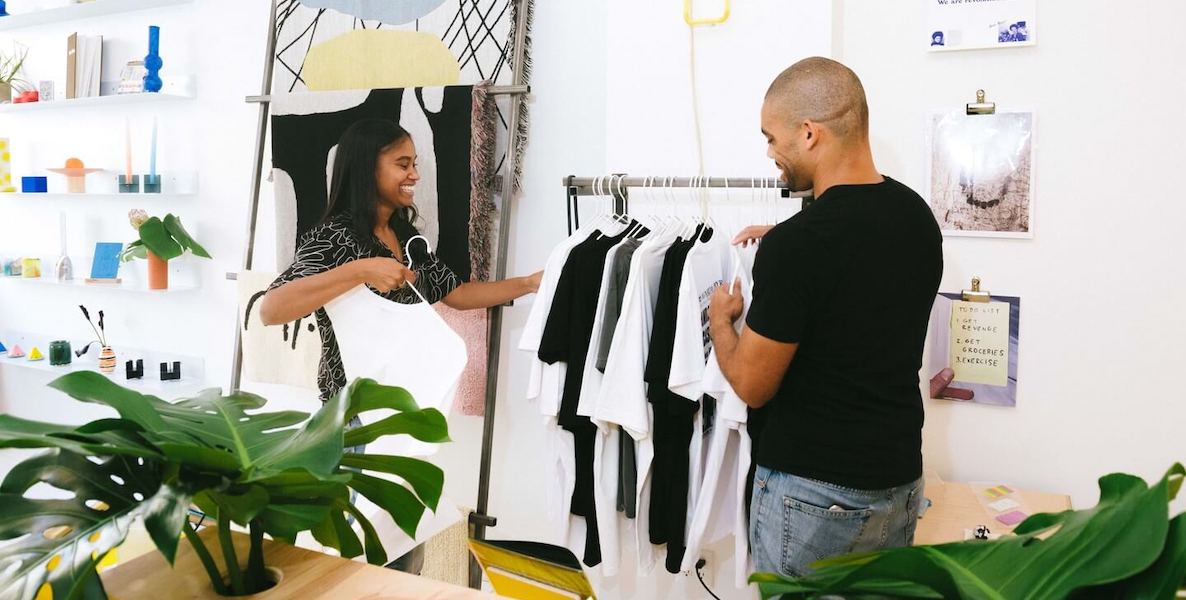Reuben “Big Rube” Harley has been and done many things in his 40-plus-year life: revolutionary marketer of the throwback jersey with local retailer Mitchell & Ness; street photographer, whose “Street Gazing” photos ran in the Philly Daily News from 2011 to 2017; and (less successfully) founder/CEO of his own “Harley” clothing brand.
But throughout (and in between) those phases, Big Rube returned time and again to his true love and passion: cooking. Specifically, cooking what he calls “Black folk food”—no qualifiers; and these days, no substitutes.
Black culinary history in America is deep and complicated. Born in the kilns and kitchens of America’s brutal slave trade; informed by a long history of African diasporic cuisine and the ingenuity of enslaved Africans in America, African-American culinary practice is a fascinating study of survival, innovation and empowerment.
For Harley, this long history goes back to his grandmother, an entrepreneur in her own right, but also an informal master of the culinary arts. Little Reuben studied his grandmother on a regular basis, as a child and even as he grew up in West Philadelphia. The recipes of Big Rube’s Kitchen are mostly hers, passed down from one generation to the next.
From Reuben Harley’s perspective, Black folk food has not gotten its just due in the culinary or entrepreneurial world. The staples—like fried chicken and collard greens—have been appropriated and emptied of their Black culinary roots in fast-food restaurants and high-end establishments prepared to separate Black people from the fruits of their culinary labor and artistry.
Harley relates to this Black culinary history through his kitchen(s), his own family and his deep sense of connection to the Black community. (Harley and his work were profiled last month by Newman’s Own Foundation.) This is also at least part of the reason why Big Rube’s Kitchen doesn’t compromise. And although he was reluctant to finally write down his recipes in order to scale up his business, he remains committed to the basic principle that Black food is and always has been enough—all by itself.
Harley’s clear vision and his unwillingness to compromise has served him well throughout his multifaceted career. He’s been doing Big Rube guest chef appearances and pop-ups for years.
This month, he’s opening the first of two planned brick-and-mortar locations, building on the work he’s done during the pandemic to step up his food game, delivering his signature fried chicken, mac-n-cheese and chocolate chip cookies through food delivery services all over the city.
I recently sat down with Harley to learn some lessons from a Black Renaissance man.

James Peterson: Talk a little bit about how your cuisine and your work is situated within Black history and culture.
Reuben Harley: It’s just 365 Black. I’m stone-in-the-ground, unapologetically “This is Black folk cooking.” There’s no Southern cooking. There’s no soul food.
Basically, American food is Black folk cooking, and we need to stand on that and stop buying our culture back from people. People take our culture and we buy it back. This is Chef Big Rube’s Kitchen. I’m giving it to you straightforward. You can’t change the menu. I don’t make any edits to the menu. What you order on the menu is what you’re getting. We don’t substitute. It’s not mine if I substitute.
This is stuff that I honed from being right there and my grandmother showing me how to do it. There wasn’t no recipe books. Little bit of this, some of that. To taste. Now, I had to write a recipe book for my employees to give you the genuine taste that people had at my pop-ups. But I learned from just watching. The best teachers is the ones that learned like that.
Basically, American food is Black folk cooking, and we need to stand on that and stop buying our culture back from people.
JP: How has Big Rube’s Kitchen done during the pandemic?
RH: The business is great. I just need more great employees. I have more than enough business and there’s more coming. There’s a ghost kitchen [with food entrepreneur Aaron Anderson] and everything is through the food apps, GrubHub, Uber Eats, and more. As soon as we go live the orders just come in. So, somebody will order fried chicken, 9 o’clock in the morning, and order 2 o’clock in the morning scrambled eggs with cheese and beef bacon and home fries.
JP: You’re getting ready to open a brick-and-mortar restaurant, right?
RH: Oh, yeah. We’re going to do it in a way that hasn’t been done before. It’s like our culture, we go out and reach for everything that’s not ours and go out and get it. So, my first brick-and-mortar is coming in late March. It’s cheesesteak and fried scrimp. Not shrimp. How we talk—it’s Big Rube’s Cheesesteak and Fried Scrimp on East York and Aramingo.
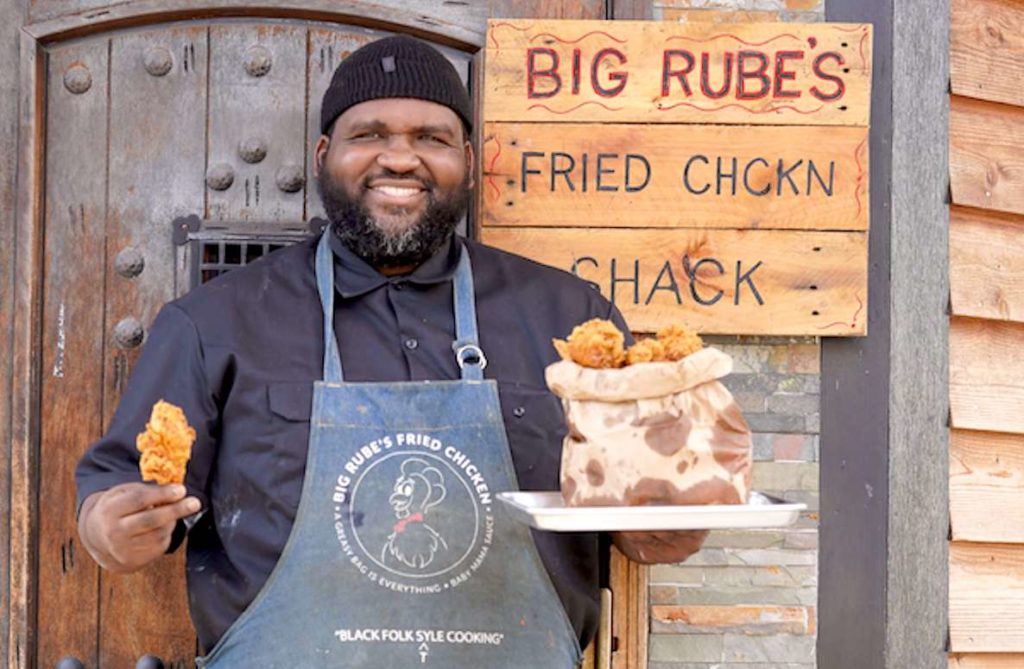
And my fried chicken shack is going to be in Ardmore. Somebody said, “Well, why would you open up there?” It’s like, if me as a Black person can go out to King of Prussia Mall, go all out of my way to buy a $500 Balenciaga, that’s how my brand is going to be. Inspirational. Aspirational. You’re going to go to Ardmore and get that fried chicken. The audience out there, the affluent people, Black folks was in their life all the time. So, they were raised on our cuisine. So, I’m going to be there to have that right there, and everybody else [will] come get it.
JP: You have had an extraordinary career as an entrepreneur and as somebody who’s developed products and services in the urban community, and in Philadelphia specifically. Where did it all start for you?
RH: I grew up in West Philly and in Brooklyn. My parents were together up until I was 4 years old, and I was raised by my mom and my grandparents predominantly. I’ve seen a lot, been through a lot.
My grandmother is a seamstress and she was an elevator operator at the University of Penn Hospital. My grandfather was a cab driver and he was head of housekeeping at Bryn Mawr College. He owned a bar (as well). So, the entrepreneur experience is in my blood.
My mom is a seamstress as well. She was Muhammad Ali‘s wife—Belinda Ali’s—personal seamstress. You know what I mean? My grandmother, she did prom dresses and stuff for different celebrities and everything and her clientele was real affluent people. And I’ve seen that growing up.
JP: Were you raised in Islam?
RH: Yes. Both of my parents were in the Nation of Islam. I was held by the [former Nation of Islam leader] Honorable Elijah Muhammad and Muhammad Ali. I was selling [the newspaper] Muhammad Speaks at the age of four years old. I went to Sister Clara Muhammad School. Everybody knew my father, Woodrow X, who later changed his name to El Khalid Walid Rahman Bey, a Moorish American. And I was raised in the Ansar community on 52nd Street.
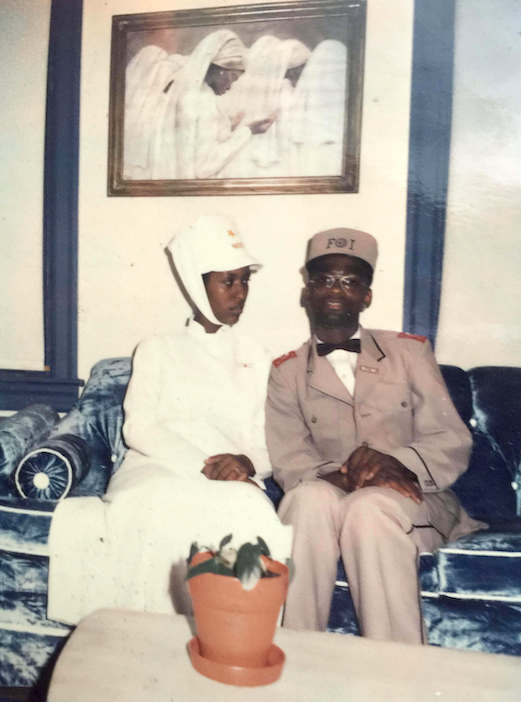
JP: Some people don’t understand the connection between Islam and its impact in the city of Philadelphia and Black entrepreneurship. Obviously for you it’s in your family; you come from a generational series of entrepreneurs. But some of that’s also in the faith.
RH: Well, like the honorable Elijah Muhammad said, “Do for self.” To be self-sufficient and not have to have a hand out, because we come from a strong people. Everything that we went through in this country is resilience. [Comedian and activist] Dick Gregory used to be in our house. And he always said that “the perfect thing to model after are Black Muslims”—so-called Black Muslims, because they never say “Black Christians.”
It’s that “believe in yourself” mentality, that always was the creed. And I grew up in and amongst that, so that’s why my siblings even said “Wow you’re just like our father,” because my father created the Akbar juice. He had Muhammad Steak N’ Take on 30th and Allegheny and on 52nd and Media. So, people know.
The former sheriff of Philadelphia, Jewell Williams, who was a great friend of mine, when he found out who my father was he was like, “Man, your father used to come up and get all the gangbangers off the corner.”
When my father passed away in 2013 all of the City Council people, they had proclamations for him at his Janazah. It was something. My great friend [City Managing Director] Tumar Alexander, when he found out who my father was, he was like, “Oh, that’s why you are who you are. You’re a hustler. You know what I mean? You make things happen.” So it’s something to be proud of.
JP: You moved to Brooklyn as a child because your family wanted to help build the Ansar community there. You were also interacting and crossing paths with Jay-Z, with Jaz-O, with Nas. Can you talk a little bit about that piece of your life?
My first brick-and-mortar is cheesesteak and fried scrimp. Not shrimp. How we talk—it’s Big Rube’s Cheesesteak and Fried Scrimp on East York and Aramingo.
RH: Yeah. So, I’m a younger guy and they’re older, but they used to come to the community to get knowledge. And this is in the beginning of their fame and stardom and everything. And they all used to hang. We had a pizza shop, but it sold only organic and wheat flour pizza. This was in the late-’80s. And even [hip-hop group] KMD, they were in the community with us; they became MF Doom.
I’m the Forrest Gump of Black people because the things that I touched. To be touched by the Honorable Elijah Muhammad, and shaking hands with Michael Jackson, to seeing Kobe Bryant in his infancy, driving around LeBron James, and all these things that I pioneered.
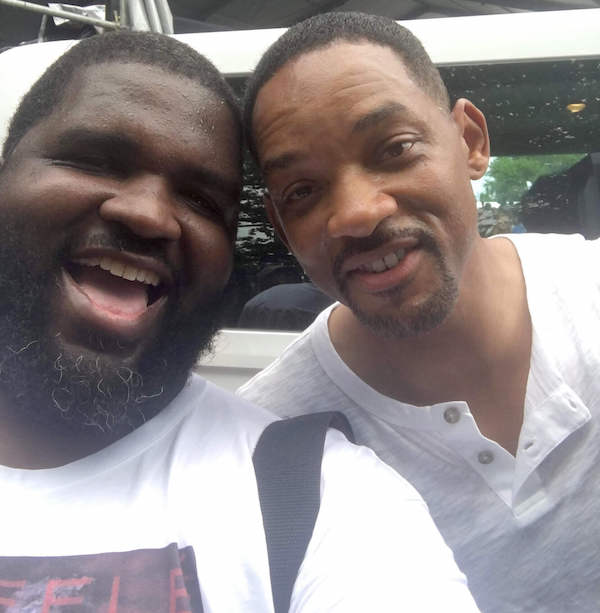
JP: So, you come back to Philly. How did you get involved with the repositioning of Mitchell & Ness in hip-hop culture?
RH: I always loved fashion growing up, soaking up everything from my mother and my grandmother. And I loved women’s fashion. I loved styling women and everything.
But growing up in the hood, 56th and Spruce, and seeing what I saw—this was the middle of the crack era—I didn’t really want to show my passions because I loved cooking and loved fashion. I thought how that was going to be perceived as a feminine thing. I kind of forgoed it until I was in my late teens. And that’s one of my regrets in life. But when I figured it out, my passion led everything.
And I love sports. I’m a sports statistics junkie. I could tell you who won the World Series from 1940 to now. I discovered Mitchell & Ness in the early-’90s. This is where you go get your Negro League hats. They had the Ethiopian Clowns hats, the Homestead Grays hats, all of these. That’s where you had to go cop it.
For some reason, me being that left-handed outlier, I drifted over to those jerseys and I started putting them on layaway. And I got to know [founder] Peter [Capolino], his cousin Ray, who was managing the store, and I just started accumulating all these jerseys.
JP: How were you buying all of those jerseys back in the day?
RH: I was waiting tables at a Holiday Inn. I was a line cook as well. That’s where I [got the nickname] “octopus arms;” I was a busboy, dishwasher, room service waiter, and I waited tables, and I had a shift cooking on the line. I never pigeonholed myself. I always tell people, “If you have an interest, just pursue it.”
JP: But you were earning your money in a legitimate space to build your interest and really build that career on the fashion side of it, because you were onto Mitchell & Ness before Mitchell & Ness was known to everybody as Mitchell & Ness.
RH: Yeah, it was just that store on the corner of 13th and Walnut. Like I said, I was buying the Roberto Clemente jersey, the Hank Aaron. I was accumulating them. The reception I would get, just buying these jerseys and wearing them—like, “Yo, Rube, where you get that from? Man, they too hot.” And I told [owner Peter Capolino] 10 years before we partnered up: “Look, I’m gonna blow this thing up. And this is mine.” He couldn’t see it. But I’m like, “You don’t understand. When I go around the way, when I go around my people, they go crazy over these jerseys.”
And it was just building—I was just building up all those years. People see now all the media attention I’m getting, but the last eight, nine years, I was grinding in the dark. And this is a culmination of everything.
So, those 10 years I was building up everything and seeing where it was going to go, because in between that I was going to all the hair salons and barbershops selling my food. And I created a niche right there. Think about it. In our community that’s the meeting place. But I came there to serve food while people was waiting to get a haircut.
JP: Talk about that. What kind of food were you bringing to barbershops and salons in Philly when were you doing that piece? And when was this?
RH: This was from ’97 to ’01. I had a water ice stand. I would take my water ice and just service them. And summer league games too. All over the city: 16th and Susquehanna, 57th and Haverford, Sharswood, 56th and Catherine. I was all over.
And in the winter time I started out with my fresh baked goods. I would make cakes and cupcakes. I’d just start in West Philly at the hair salons I knew, and next thing you know I ventured off. And the stylist was like, “Yeah, my homegirl, she heard about you. She wants you to come to the hair salon up in Germantown.” And it just kept building.
Born in the kilns and kitchens of America’s brutal slave trade; informed by a long history of African diasporic cuisine and the ingenuity of enslaved Africans in America, African-American culinary practice is a fascinating study of survival, innovation and empowerment.
So, from Snyder Ave to Ogontz Ave I was all over the city. And I served on dope corners because all the guys out there selling dope, they wanted my food. So, I built a name for myself. I always tell people I was known as a drug dealer in the city but didn’t take penitentiary chances.
JP: [Laughs] That’s fantastic. At what point did you and Peter formalize your relationship with Mitchell & Ness? How did it happen?
RH: In August of 2000 I went out to the Source Awards and I wore my 1976 Dr. J jersey. And I’m mingling. Then, the guys I went with—my so-called friends were clowning me because I’m going up to 8 Ball and MJG. I’m talking to Beyoncé, Kelly Rowland, [former Destiny’s Child member] LaTavia. And they was like, “Yo, what you doing? Why you being Joe Familiar?” I said, “I’m going to be doing business with these people. I’m sparking up conversation. They love what I got on.” I sat next to Lil Moe at the awards and me and her are friends to this day.
April 2001, me and Peter solidified the partnership and I was off to the races. I was the marketing director [for Mitchell & Ness]. And then, when I blew it up that’s when he opened up the books and I became an equity partner.
JP: So, you did that for about five years, and then left to launch your own line. Tell me about Harley.
RH: It was a streetwear line that I started. I came up with the crazy designs. I had one of the guys that worked for me at Mitchell & Ness, he came along with me. And I was doing everything. I had the office on 1400 Spruce right across from the Kimmel Center. I was doing all the sales and marketing. People loved it. I sold some units but in the fashion business you’ve got to always keep fresh goods going on, your lines of credit and everything, and be on top of your retailers. So—and then with the recession everything went ka-boom. I put a million dollars in. I lost it. It was during the recession of 2008. So, that kind of blew up in my face.
And it was a great lesson learned. I mean, I have no regrets because I put it out there. And for me being a high school dropout, never dribbled a ball, never rapped a lyric, and to have a million dollars in a bank account, that’s an accomplishment in itself.
JP: So, now let’s bring it up to date. What did you do between the time in which Harley went sideways and you restarted your culinary work? What happened in the meantime?
RH: Well, I picked up the camera and I had great affluent clients that I still do style for. I style a lot of women and guys, but mostly women because women that want that really avant-garde, sexy look, they come for me. So they want me to shop for them, either special occasions or something for their significant other. So, I style for them. I go out and pick the look and dress them up, and I do closets and everything.
And then I picked up the camera and around 2010, I just got on a bike and I just started getting on my Gordon Parks-inspired [work as a photographer]. I started a blog called StreetGazing.com. I was going around the city and I was shooting people candidly and posed, and it was so crazy to people. People that didn’t know me was like, “Yo, what you doing?” But If you know me, I pursue my interests.
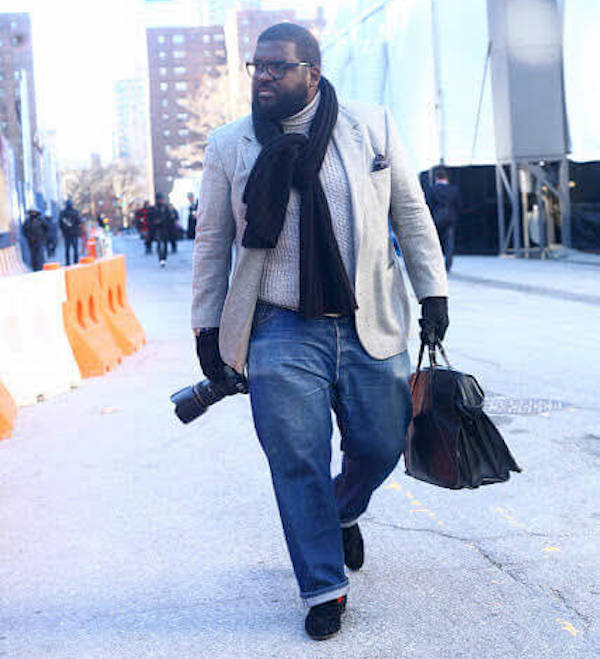
And I signed a deal with The Daily News in July 2011. I was off to the races. And people responded to it. They loved it. It was like I made people buy print media when that was a dying thing. People bought it because if I featured you, you and your whole family bought out a whole newsstand and more. So, that was a great element.
JP: When did you say, “Hey, I’m going to get back on the food services side of it?”
RH: I was still doing both. But this is what happened. It was serendipitous because my good friend Greg Dodge that owns Zavino Wine and Pizza Bar in Midtown Village and in University City, he said, “Hey, Reuben, I love your photos. Can you shoot my website and the food for Zavino?” I told him, “You know, I make a mean ground turkey lasagna.” So he said: “Let’s do a guest chef, a celebrity guest chef.”
And that’s how it started. I would do pop-ups as a guest chef. So, I sold four big banquet pans of lasagna in less than two hours. And people that knew me from WIP, that followed me, they just came out and showed an abundance of love.
And I always have lightbulb theories when I do something new. I was like: “Wow, I know all the restaurateurs in Philly, so let me call them and let’s do a guest chef thing.” I just started rolling out pop-ups. And other restaurants were calling me. And it was just building up, building up. And people wanted to have my stuff more and more. I’m like, “Well, I’ve got to open up a restaurant.”
So, eight, nine years later, here we are.
This interview has been edited and condensed.
Header photo by Neil Tandy


